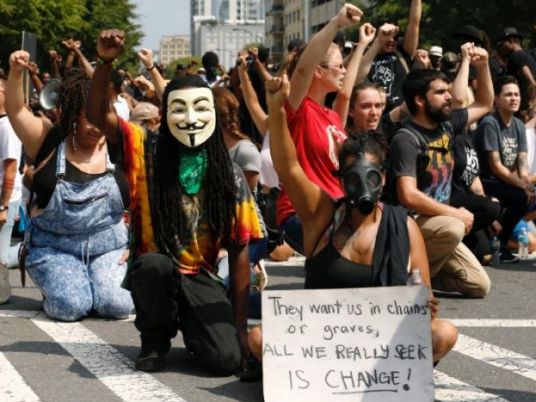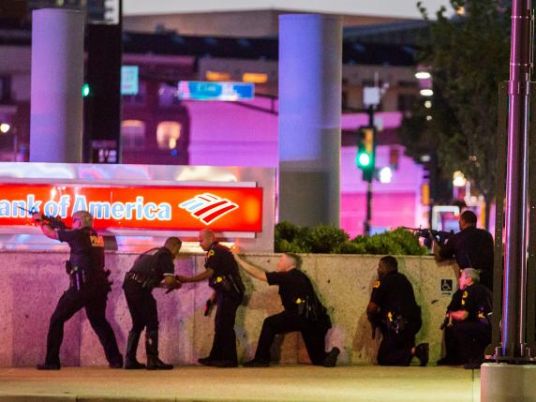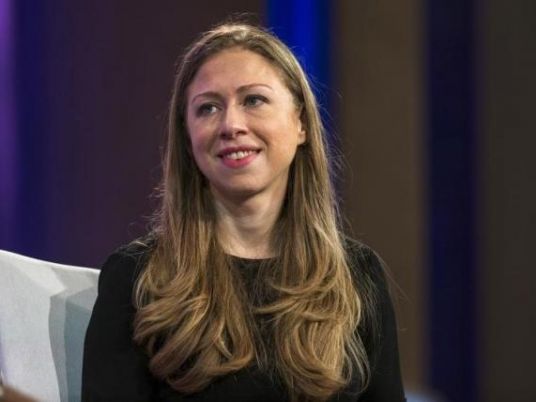
A couple hundred demonstrators chanted and marched through Charlotte on Sunday, as protests persisted after the release of two videos showing the fatal shooting of a black man by police officers in North Carolina's largest city.
Angry protesters have filled the streets of Charlotte every day since the Tuesday killing of Keith Scott, 43, whom police said was armed when officers shot him.
Crowds were smaller on Sunday than earlier in the week, but protesters said they would continue until police, who on Saturday released portions of videos showing Scott's death, published all the footage.
The video released offered no clear evidence that Scott was holding a gun when he was shot.
"It's one word: transparency," said, Kerby McLean, 26, a pastor at Perpetual Hope Kingdom International church in Charlotte, calling on elected leaders to get the tape.
"We're protesting until they respond to what we want them to do," he said.
The fast-growing Sun Belt city, a banking center, became the latest flashpoint in two years of tense protests over U.S. police killings of black men, many of them unarmed.
The protests in Charlotte, one of the U.S. Southeast's most vibrant urban centers, have stayed peaceful for the most part but on Wednesday violent clashes erupted between protesters.
Flanked by police on bicycles, the marchers went through the center of Charlotte and out into residential neighborhoods on Sunday. The city lifted a midnight curfew that had been in effect, though irregularly enforced, for three days.
A smaller crowd of about 100 also protested at a National Football League game in the city earlier in the day. Small groups of police in riot gear chatted with fans as they arrived.
Inside the stadium, Carolina Panthers quarterback Cam Newton signaled his support during the pre-game workout by wearing a T-shirt with a Martin Luther King Jr. quote: "Injustice anywhere is a threat to justice everywhere."
About two thirds of NFL players are black, and several players in the league, including San Francisco 49ers quarterback Colin Kaepernick, have taken to bending down on one knee during the pre-game singing of the national anthem in protest at police violence.
The Charlotte Panthers lost to the Minnesota Vikings, and protesters and fans alike began leaving before the game ended.
A Panthers fan sympathized with the protesters but did not think they would succeed in changing policing.
"I get the message the protesters are trying to send," Joe Mader, 24, said. "I think it's smart that they're out here. I'm happy to have them here."
On Saturday, police released several minutes of videos showing Scott's shooting in the parking lot of a Charlotte apartment complex.
Charlotte-Mecklenburg Police Chief Kerr Putney acknowledged that the videos themselves were "insufficient" to prove Scott held a gun but said other evidence completed the picture.
Police said officers trying to serve an arrest warrant for a different person caught sight of Scott with marijuana and a gun, sitting in a car in a parking lot.
Both Scott's family and protesters have disputed the police statements that Scott was carrying a gun.
One of the released videos from a police dashboard camera shows Scott exiting his car and backing away from it, hands at side. Police shout to him to drop the gun, but it is not clear that he has anything in his hand. Then shots break out and Scott drops to the ground.
Police released photos of a marijuana cigarette, an ankle holster they said Scott was wearing, and a handgun, which they said was loaded and had Scott's fingerprints and DNA.
But Scott's family, which released its own video of the encounter on Friday, said the police footage showed the father of seven was not acting aggressively and that the police shooting made no sense, with no attempt to de-escalate the situation. The family video, shot by Scott's wife, was also inconclusive on the question of a gun.
Many black Americans have complained that they have long faced disproportionate use of force by some police departments, but the surge in smartphones and video recording devices has forced national attention on a string of recent episodes.
In recent days, a white police officer shot a 13-year-old black boy in Columbus, Ohio, and a white police officer in Tulsa, Oklahoma, shot an unarmed black man.




